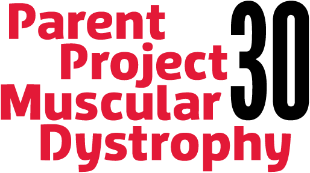Types & Phases of Clinical Trials
There are several different types of clinical trials, as well as different phases within clinical trials. Not all types and phases of clinical trials have the same goals. Understanding the questions the researchers are trying to answer can help you decide if you may want to participate in a trial.
Types of Clinical Trials
There are several different types of clinical trials which are described below:
- Treatment trials test experimental treatments, new combinations of drugs, or new approaches to surgery or radiation therapy.
- Treatment trials can answer questions like: Can a new drug help people with Duchenne?
- Prevention trials look for better ways to prevent disease or prevent a disease from returning. These approaches may include medicines, vaccines, vitamins, minerals, or lifestyle changes.
- Prevention trials answer questions like: Will a new vaccine prevent a certain illness in children with Duchenne?
- Natural history trials (watch our video for more information) watch people over time to see which symptoms they have and how the symptoms of the disease change over time. Natural history studies can be used to find out which symptoms of Duchenne are common and which are less common.
- Natural history studies answer questions like: How do the symptoms of Duchenne change as children get older?
- Screening trials test the best way to detect certain diseases or health conditions.
- Screening trials answer questions like: Will a new lab technique be able to detect Duchenne in a newborn screening blood sample?
- Quality of life trials look for ways to improve the comfort and quality of life for people.
- Quality of life trials answer questions like: What kind of physical therapy techniques help people with Duchenne walk for a longer period of time?
- Genetic studies are designed to find the gene changes that cause a disease or symptom. These studies can also help provide information about how a gene works which can help researchers develop new ideas for treatments.
- Genetic studies answer questions like: Which mutations cause more severe heart disease in people with Duchenne?
Phases of Clinical Trials
Clinical trials are conducted in phases. Each phase has a different purpose and helps answer different questions. Today, new drugs and medical devices must go through several phases of clinical trials before being approved for use.
| Phase | Purpose | Participants |
|---|---|---|
| Pre- Clinical | Assesses safety and biological activity | In lab only; can use tissue and/or animal models |
| Phase 1 | Tests for safety in humans and to determine a safe dose | In humans, but typically a small group only |
| Phase 2 | Tests if treatment seems to be effective and looks for any side effects | In humans, usually larger group than Phase 1 |
| Phase 3 | Tests if treatment is effective in a larger group of people and looks for any side effects; potentially compares experimental treatment to other commonly used treatments | In humans, typically larger group than Phase 2 |
| Phase 4 (Post Marketing) | Collects information on risks, benefits, and optimal use | In humans, after therapy is approved |





